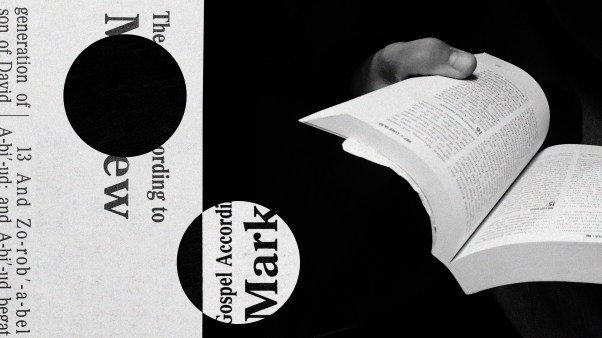The church was born in a political context both like and unlike our own. We Christians today find ourselves worshiping amid empire, just as our first forebears did. Idolatrous civil religion now, as then, competes for the allegiance we owe to Christ.
But ours is an empire that wears the face of democracy, and our civil religion demands nothing so blatant as genuflection before a statue of Caesar. The apostle Paul was never asked how he thought Rome ought to be run. Simon the Zealot’s zeal, if of the nationalist variety some church traditions suggest, was patriotic fervor for a small, occupied nation that would soon be brutally crushed by a trio of wars.
American Christians, by contrast, can participate in the governance of the most powerful nation on Earth. Our political system invites us to be the “rulers of the Gentiles [who] lord it over them” (Matt. 20:25), to embody the very object lesson Jesus used to warn his disciples against seeking power. What does faithfulness in political engagement look like for us?
Evangelicals in the US have long vacillated between two theories—or, perhaps, impulses. One draws on Reformed thinkers like Abraham Kuyper and asserts that our faith should be evident in all parts of our lives. Christians must use our political power to make state and society conform to God’s will as best we can. The second impulse, rooted in Anabaptism and Pietism, likewise takes a holistic view of faith but pairs it with a far stronger skepticism of sanctified power. Service to church and state require different, and sometimes incompatible, ethics and loyalties. As faithful citizens of the kingdom of heaven (Phil. 3:20), we are limited in what we can do as citizens of any earthly kingdom.
Caesar is not Lord, no matter how much I might like his platform.
I was raised in an evangelicalism under the sway of the first impulse, and I make my living from political commentary. Yet I worship in a Mennonite congregation precisely because of the denomination’s hard-tested refusal to participate in the idolatry and violence of the state. I feel the appeal of both impulses. I contend daily with which kingdom claims my attention and which is forming me with its liturgies.
I don’t have an easy answer for what faithfulness looks like in our increasingly consuming political context. I try to remember that seeking power is not what it means to follow Jesus, and that no politician, party, flag, or nation can be the source of my hope or the recipient of my allegiance. Jesus is Lord, so Caesar is not, no matter how much I might like his platform. Temporal politics—the “lesser kingdom” for which we’ve titled this column—are deeply important and often literal matters of life and death. But they pale in comparison to Jesus, and they should pale in comparison to the work of the church, too.
In this space, then, my aim is for my writing to be marked by three attributes. First, it should be prophetic more than prescriptive. I hope to imitate Old Testament prophets decrying injustice more than K Street lobbyists proffering themselves as sources of solutions. That’s not to say I don’t have policy recommendations. But, as Charles Colson wrote in a 1998 Christianity Today column, Christians are generally on surer ground “serv[ing] as society’s conscience” than collecting power for themselves as arbiters of policy decisions. Reasonable, faithful Christians may disagree—dramatically!—on how best to seek the good in politics, but discipleship should equip us all to call evil by its name.
Second, my writing should be eclectic. Colson’s 1998 column centered evangelical engagement solely on social issues: abortion, euthanasia, and gay marriage. With the hindsight of two decades, this is an inadequate list. It is also a potential source of distortion in our thinking insofar as it precludes attention to matters of war and peace, criminal justice and policing, housing and urbanism, and so many other pressing political questions we face.
Finally, it should be humble. “Boast not that you are mighty upon earth, and have great power,” Menno Simons, for whom the Mennonite tradition is named, advised those in positions of authority. Instead, as he charged, even in politics let us “seek the kingdom and country that will endure forever; and reflect that [we], however highly esteemed, upon earth are only pilgrims and sojourners in a strange land.”
Bonnie Kristian is a contributing editor at The Week and the author of A Flexible Faith: Rethinking What It Means to Follow Jesus Today.










